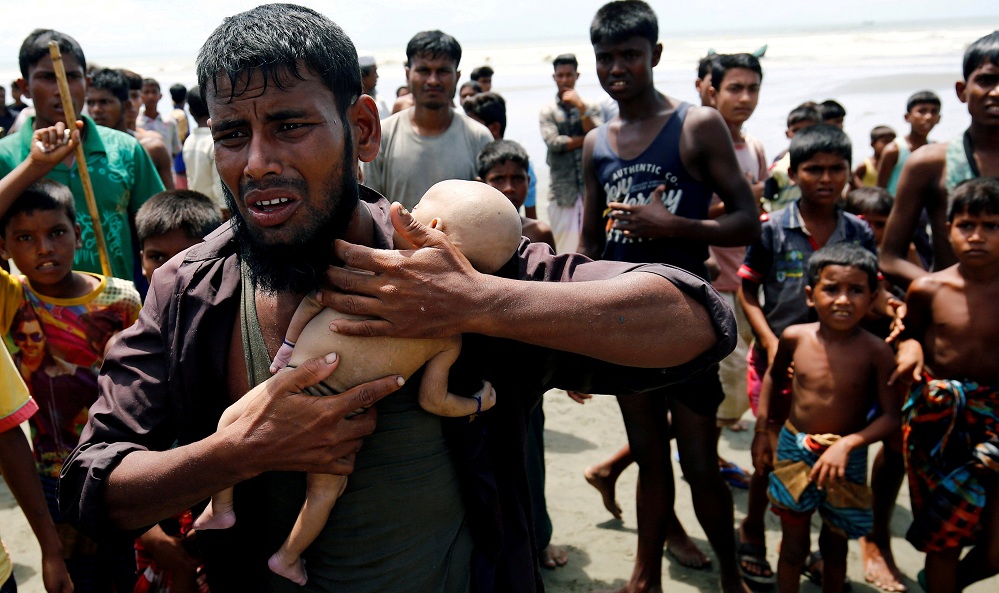Alwaght- Amnesty International called for the trial of senior Myanmar military officials should face over ethnic cleansing of Rohingya Muslims.
The leading human rights organization issued a report on Tuesday, urging the United Nations Security Council to refer its report’s findings to the International Criminal Court (ICC) and impose a “comprehensive arms embargo” on the mainly Buddhist country and financial sanctions against senior officials.
According to Amnesty the Myanmarese regime's violations have "amounted to an orchestrated campaign of murder, rape, torture, and destruction aimed at punishing the Rohingya population in northern Rakhine State and at driving them out of the country,” Reuters reported.
More than 700,000 Muslim Rohingyas have been forced to flee to neighboring Bangladesh from Southeast Asian country since a military-led operation last August that the United Nations has called a “textbook example of ethnic cleansing.”
Meanwhile, Reuters news agency in a special report on Tuesday gave a comprehensive account of the roles played by two light infantry divisions in the offensive against the Rohingya.
It named Senior General Min Aung Hlaing, the commander of Myanmar’s Defense Services, and his deputy and commander of the army, Vice Senior General Soe Win, and commanders of specific units that “committed many of the worst atrocities.”
The report also named eight other military members and three members of the Border Guard Police.
Amnesty said these people should face justice “for their command responsibility, their direct responsibility, or both.”
In Myanmar, Rohingya are widely called “Bengali,” which they see as a derogatory term implying they are illegal immigrants from Bangladesh. Despite many Rohingya tracing their roots in Myanmar back generations, they have been denied citizenship.
Amnesty called on Myanmar to halt restrictions on freedom of movement and restore citizenship to the Rohingya.
In Myanmar there is no civilian oversight of military justice. The International Criminal Court, the world’s first permanent war crimes court, does not have automatic jurisdiction over Myanmar because it is not a member state.
However, the ICC has already been asked to consider a separate case dealing with Myanmar allegedly deporting Rohingya to Bangladesh, which is an ICC member state.
The ICC did not immediately respond to requests for comment outside business hours in The Hague.
If the UN Security Council referred Amnesty’s findings to the ICC, it would also grant the court jurisdiction to investigate.



























